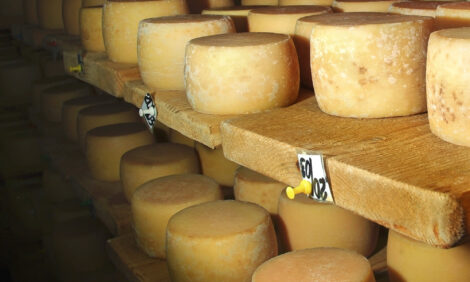



CAP Doesn't Face EU Challenges
EU - With the financial and economic crisis worsening, unemployment increasing and environmental problems ever pressing, the European Coordination Via Campesina, which represents small farmers across Europe, believes that the European Commission's proposal on the Common Agricultural Policy (CAP) does not meet the challenges Europe is facing.The EU has lost 20 per cent of its farmers over the last eight years. ECVC says that if sustainable family farming is to remain Europe then the CAP must help producers receive fair farm prices and income perspectives.
ECVC believes that the proposals will not help improve the social and environmental legitimacy of direct payments.
On top of this it lacks the market regulation needed to deal with crises.
In a press statement, the group says that recent market crises have demonstrated a clear need for regulation, to prevent structural surpluses or shortages and stabilise agricultural markets.
The current safety net proposed will not prevent disasters, says ECVC, instead a toolbox is needed, with instruments that can be used to address price instability or insufficiency. Public supply management, which avoids surpluses or shortages is necessary, together with strategic grain stocks at European and global levels as well as a ban on any form of dumping.
ECVC says that the priority for EU agriculture is not to be competitive on the world market but to feed people in Europe.
The group does also not believe that milk quotas should be abolished, but rather that they should be improved.
Regarding the 'greening' of the CAP, the ECVC supports the 30 per cent rate, however believes that the CAP should do more in favour of low input agriculture.
The proposed measures need then to be revised, as they will hardly make the CAP greener, since the majority of farms already meet them.
The three measures put forward by the Commission do not apply to every agro-climatic region: further measures are required which are applicable to other regions, such as Nordic or Mediterranean regions. ECVC is asking for:
The mandatory rotation of crops between fields;
Include plant protein/ legume crops into the rotation where agro-climate conditions allow it;
Ban ploughing up of permanent pasture not from 2014, but from 2012, to prevent large-scale ploughing up of grasslands.
The proposed threshold of five per cent direct payment in relation to non-agricultural income is too low and only applies to some extreme cases. In other respects part time farmers should not be wronged (they constitute a majority in some regions and play an important role in local and regional food production and ensuring lively country side).
The ECVC welcomes the acknowledgement of small farms and is in favour of a specific payment. However by proposing that small farmers choose between a small lump sum, in settlement in the first pillar, and the system of direct payment, the Commission is treating small farmers separately, instead of integrating them into the same system as the others. It is more like giving them alms while awaiting their disappearance, all the more as in the second pillar a possible subsidy is given to small farms indeed for disappearing.
More information on what the ECVC proposes can be found here.
TheCattleSite News Desk


